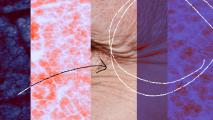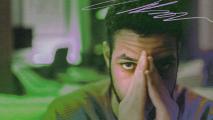Dementia patients are “rallying” just before death. Scientists want to know why.
New research into terminal lucidity — a strange phenomenon in which people with severe dementia suddenly regain their mental faculties right before death — could transform our understanding of dementia, and maybe even point to a way to reverse it.
Terminal lucidity
Dementia involves the loss of memory, cognition, and speech. It’s caused by changes in the brain due to injury or disease, such as Alzheimer’s or Parkinson’s, and it’s progressive, meaning the symptoms get more severe over time.
More than 55 million people are living with dementia, and the condition can be extremely distressing both for those experiencing it, especially in its later stages, and their caregivers — often, they’re trying to help a loved one who now treats them like a stranger.
Sometimes, though, people with dementia who hadn’t been coherent for years will suddenly revert to their mentally sharp selves for up to several hours — and then die shortly after.
“The most dramatic case noted by our team was a patient who was bedridden, did not speak, and was unresponsive,” Milena Zaprianova, clinical director for the hospice care team at VNS Health, told proto.life.
“One day the patient got out of bed, went to the dining room, had a steak and engaged with family,” she continued. “The patient then returned to bed, went to sleep, and died the next day.”
“We have a woefully limited understanding of the phenomenon.”
Douglas Vakoch
This phenomenon, now known as “terminal lucidity” or “the rally,” is seemingly not uncommon, and evidence of it can be found in medical papers from as far back as the 1700s — yet we still don’t know much about it.
“The fleeting nature of terminal lucidity, combined with the ethical challenges of conducting end-of-life research, means we have a woefully limited understanding of the phenomenon,” Douglas Vakoch, a clinical psychologist, told proto.life.
Explaining the inexplicable
The US National Institute on Aging (NIA) is now on a mission to change that.
In 2018, it invited experts in neuroscience, geriatrics, and other related fields to a workshop on “paradoxical lucidity,” an umbrella term covering terminal lucidity and other unexpected periods of lucidity in people with dementia (even if they don’t occur just before death).
The primary goal was to figure out what was known about paradoxical lucidity so far and identify the best targets for further study.
After the workshop, NIA researchers published a Perspective article with their findings in the journal Alzheimer’s & Dementia, and the NIA announced two funding opportunities for scientists interested in studying paradoxical lucidity.
“We expect that this funding initiative will advance the nascent science of lucidity in dementia through rigorous and systematic studies,” wrote Basil Eldadah, supervisory medical officer at the NIA’s Division of Geriatrics and Clinical Gerontology.
“Changes that may be subtle to an outside observer could represent major shifts for a person familiar with the person living with dementia.”
Gilmore-Bykovskyi et al.
Four groups have received funding for studies into paradoxical lucidity, which are primarily focused on defining the phenomenon and measuring its prevalence.
In June 2022, a team from the University of Wisconsin-Madison (UWM) published an article detailing the first phase of its study. During it, the researchers interviewed 20 caregivers and 6 clinicians about their experiences with “episodes of lucidity” in people with dementia.
They found that every participant was able to recall at least one event during which a patient briefly demonstrated a “significant” or “meaningful” period of lucidity, but what was significant or meaningful to one wasn’t necessarily significant or meaningful to another — this emphasizes the need for standardization in how the research community defines paradoxical lucidity.
The UWM researchers also determined that caregiver or clinician accounts will likely be pivotal to studying paradoxical lucidity, because recognizing the phenomenon in a patient with dementia may be difficult for anyone who doesn’t spend significant time with them.
“Changes that may be subtle to an outside observer could represent major shifts for a person familiar with the person living with dementia,” they wrote.
“If we see a sign that looks like paradoxical or terminal lucidity, we can capture what it’s like visually and auditorily.”
Sam Parnia
Another ongoing NIA-funded study is attempting to create a measurement scale for paradoxical lucidity by tracking 500 terminally ill patients with dementia who are expected to pass in one week or less.
Each participant is being fitted with an EEG device to measure their brain activity, while video and audio of the patient in their home is also recorded. Caregivers will keep diaries in which they can record patients’ symptoms and any potential examples of lucidity.
“We’re going to be monitoring these people, so if we see a sign that looks like paradoxical or terminal lucidity, we can capture what it’s like visually and auditorily, and also in terms of the underlying brain biomarkers that no one has ever understood,” said lead researcher Sam Parnia from NYU Langone.
The discovery of any change in the electrical activity of the brain during periods of lucidity could be huge for dementia research.
“[I]f we could find some structural change, then we might be able to use that as a novel therapeutic target for people who regularly have dementia, or other disorders of consciousness, by trying to activate that circuit and maybe give them more lucidity,” said Parnia.
“We’ve seen enough examples of this to be reassured that dementia can be reversed … and so the question then is how.”
Basil Eldadah
Parnia’s team was awarded a five-year grant for its study in 2020, so results are likely still a few years away.
Meanwhile, a team from the Mayo Clinic Rochester is surveying 8,000 caregivers of dementia patients about their experiences with paradoxical or terminal lucidity multiple times over the course of a year to see if the phenomenon can be predicted.
Yet another in-progress NIA-funded study is being led by researchers from the Hebrew Home for the Aged at Riverdale in New York — they plan to analyze staff reports related to 1,800 dementia patients at multiple long-term care facilities to help hone the definition of paradoxical lucidity and determine its frequency.
The bottom line
Far more work is yet to be done, but the hope is that knowledge gained from the NIA-funded studies into paradoxical and terminal lucidity (and research that builds off of them) could lead to treatments for dementia.
“We’ve seen enough examples of this to be reassured that dementia can be reversed — albeit temporarily, very transiently — nevertheless, it does reverse,” Eldadah told the Guardian in 2021. “And so the question then is how.”
We’d love to hear from you! If you have a comment about this article or if you have a tip for a future Freethink story, please email us at [email protected].






